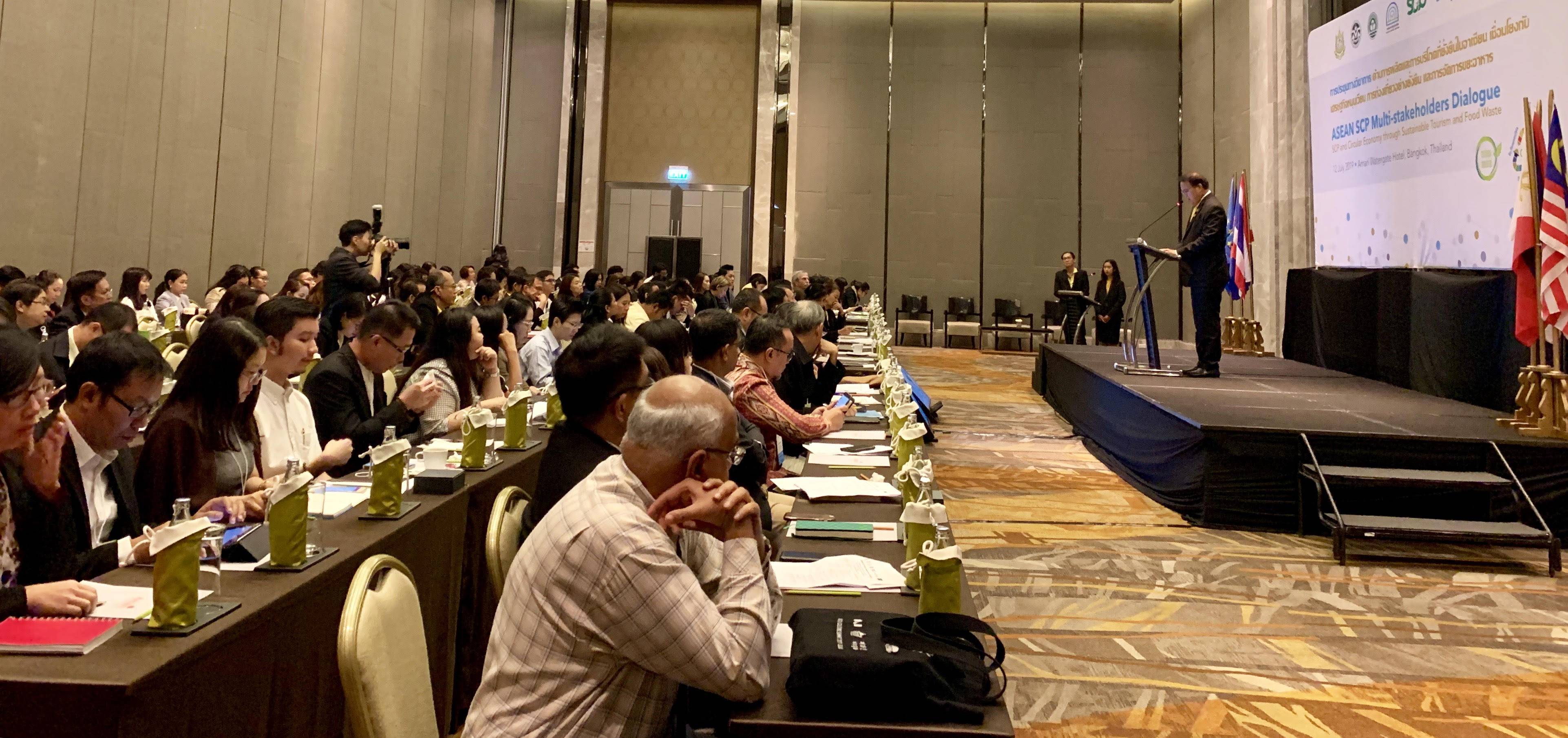
The current world population of 7.6 billion is expected to reach 8.6 billion in 2030 and 9.8 billion in 2050, according to the United Nations. The demand for energy supply, water resource and food are also expected to increase by 50, 40 and 35 percent respectively by 2030. This increase has an impact on natural resources. In the next decades, resource scarcity and pollution are going to be critical issues for the world population. In the ASEAN region, since more than a decade, urbanization, economic growth and industrialization have been rapidly increasing; however, the patterns of production and consumption have often followed the path of unsustainability.
In the context of the ASEAN SCP multi-stakeholders dialogue, particular attention will be addressed to two sectors: sustainable tourism and food waste management.
In 2018, about 129 million tourists travelled to ASEAN member states. Top destinations included: Phuket (Thailand), Bali (Indonesia) and Boracay (Philippines). Rapid economic growth in the region, coupled with air connectivity and travel facilitation, have boosted international travel in the region. If it is true that this has had a large impact on ASEAN destinations’ tourism revenues, it is also true that mass tourism has raised serious environmental and social concerns, many of those being linked to construction of new facilities such as roads, airports, resorts, hotels, restaurants, shops, restrooms, parking areas and golf courses. Larger tourist groups also mean more garbage and human waste, and more damage to sensitive marine and terrestrial environments.
Sustainable tourism development is becoming in the ASEAN region, and all over the world, an irreversible demand on the part of tourists and local populations. Countries are taking steps forward to improve travelers’ awareness and encourage the industry to switch to more sustainable practices.
In terms of food and products for consumption, most activities are related to the agriculture sector; the largest water user worldwide, accounting for 70 percent of total freshwater withdrawals on average.
An estimated one third of all food produced globally is either lost or wasted throughout the supply chain, from initial production down to final household consumption. The problem occurs in production, handling and storage, processing, distribution and market, and consumption. The per capita food loss in Southeast Asia is 120-170 kg/ year. The total per capita production of edible parts of food for human consumption is 460 kg/ year. While food waste, an issue that is increasingly being recognized in the ASEAN region, amounts to 6-11 kg/ year.
Less food and food waste would lead to more efficient land use and better water resource management with positive impacts on climate change and livelihoods. Effective interventions to prevent and minimise food waste exist in the region, yet, they are still to be widely implemented.
On 12 July 2019, over 100 participants from central, regional and local governments, private sector, academic institutes, NGOs and CSOs, as well as representatives from ASEAN and European Countries, will attend the ASEAN SCP Multi-stakeholders Dialogue: SCP and Circular Economy through Sustainable Tourism and Food Waste. The event has been organised by the Ministry of Natural Resources and Environment of Thailand, the Thai-SCP Networks, and the SWITCH-Asia SCP Facility. It will take place at the Amari Watergate Hotel, in Bangkok, Thailand.



